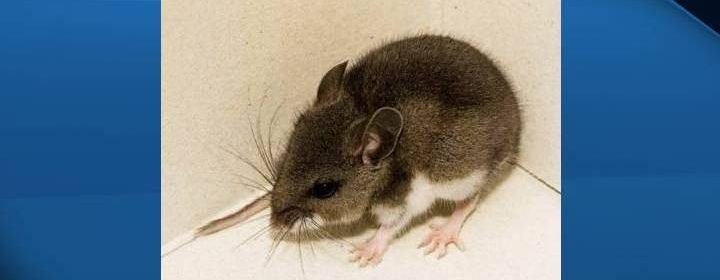Hantavirus risk increases with warm weather: Saskatchewan Health Ministry

The Saskatchewan Ministry of Health says the risk of contracting hantavirus increases as temperatures warm up and people resume seasonal activities.
Related
 3 people in Ontario contract Seoul virus, which is linked to exposure to rats
3 people in Ontario contract Seoul virus, which is linked to exposure to rats
Deer mice are the primary carriers of a particular strain of hantavirus that causes respiratory illness in humans, according to the ministry.
“You can get hantavirus by breathing in contaminated airborne particles from the droppings, urine and saliva of infected deer mice,” Dr. Denise Werker, deputy chief medical health officer for Saskatchewan, said Tuesday in a press release.
“Hantavirus can cause a rare, but potentially fatal lung illness known as hantavirus pulmonary syndrome (HPS).”
As of Dec. 31, 2018, there have been 10 fatal cases of people with HPS reported in Saskatchewan since 1994.
Officials are reminding people to take precautions against hantavirus as the weather warms up.
Exposure most often occurs when cleaning up grain bins, sheds, barns, garages, trailers, cottages and homes or farm equipment and vehicles after winter.
Some people develop severe symptoms that can be life-threatening and should seek medical attention immediately if they have a cough, fever and shortness of breath, according to health officials. Symptoms usually start within one to six weeks of exposure.
When cleaning rodent-infested areas people are advised to reduce the risk of contaminated particles becoming airborne, and prevent direct contact and inhalation through the following:
- ventilate the building by opening doors and windows for at least 30 minutes before cleaning;
- use wet mopping methods and wear rubber or plastic gloves;
- wear goggles and a well-fitted N-95 type filter mask when cleaning areas contaminated by droppings in a confined space;
- dampen areas contaminated with rodent droppings with bleach disinfectant and remove droppings with a damp mop or cloth;
- avoid using dry cleaning methods such as dusting, sweeping, vacuuming or air-hosing;
- steam clean, shampoo or spray upholstered furniture with a detergent, disinfectant or a mixture of bleach and water; and
- wash clothes and bedding with detergent in hot water.
To avoid contact with rodents and contaminated airborne particles, take the following steps:
- block openings that might allow rodents to enter a building;
- store human and animal food, water and garbage in containers with tightly-fitted lids; and
- move potential hiding places for mice away from homes.
For more information on hantavirus, visit the ministry online and HealthLine.
Sign up for our Health IQ newsletter
© 2019 Global News, a division of Corus Entertainment Inc.
Source: Read Full Article
